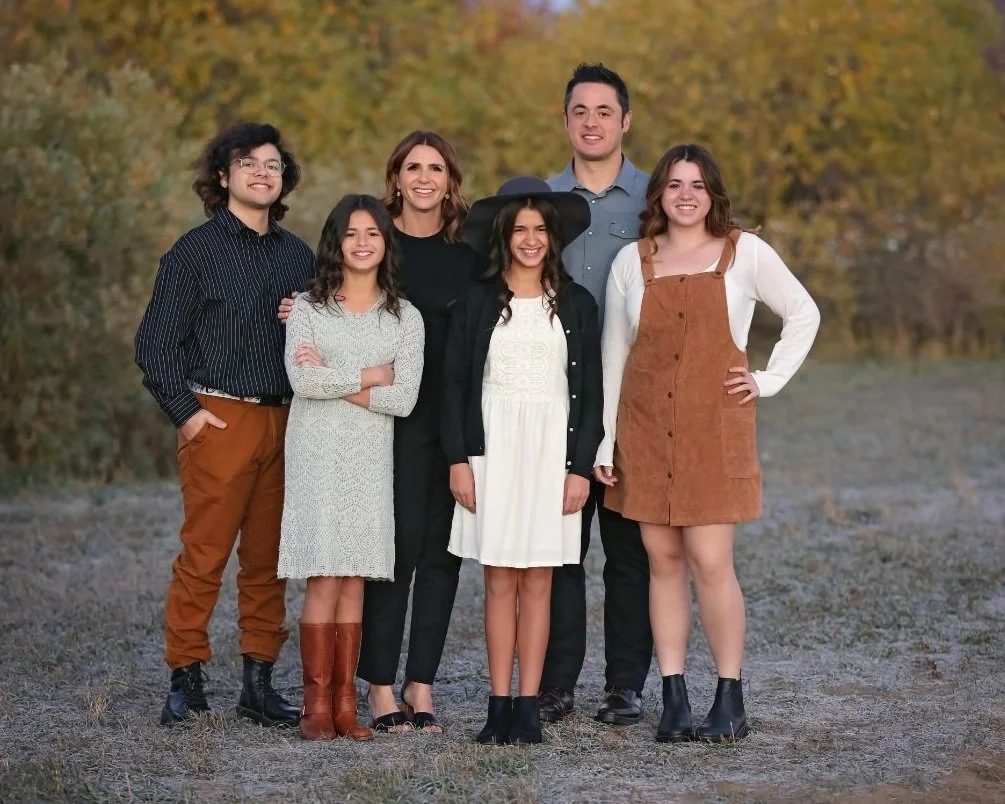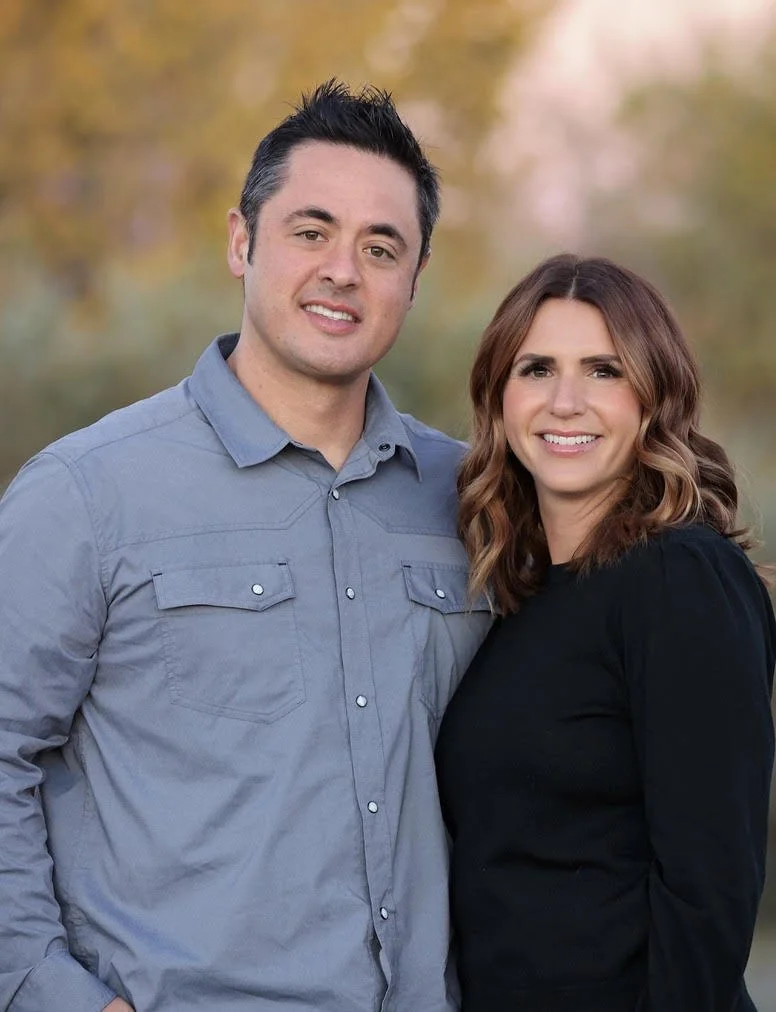We are thrilled to introduce Darice Auston as our new Lift & Love Family Stories Coordinator and we are excited for her to share her story with us.
Darice and husband Darryl lead with love, and prioritize making their home a safe space for their girls (Bazel—20, Scout—17, Harper—15, and Sawyer—11) and all who enter there. With a professional background in communications and PR, Darice delights in connecting with people. When it comes to her passion of creating affirming environments for kids like her own, Darice is a pioneer armed with resources and personal experience, who works diligently to make her area of Colorado a more inclusive space.
In middle school, Darice and Darryl observed that Bazel gravitated toward an LGBTQ friend group. They let Bazel know, “Hey, if you’re afraid to tell us this is where you belong, don’t be. We completely love and support you.” Bazel assured them this was just her friend group, not her identity. It wasn’t until after high school graduation that Bazel told her parents she was bi, which Darice says she understands can often be considered a “gateway identity,” for kids to test the waters. At this same time, in May of 2021, Darice was called to be her stake’s Relief Society president, which she feels was no coincidence. “It felt very much like God’s timing--that there are others also on this journey who need me to advocate for them through my service in this capacity. I felt such a strong call to reach out to those on the edge and champion belonging.”
That October, Darice and Darryl got a text from Bazel saying, “I’m trans and I want to go by she/her pronouns.” They were shocked. Darice says, “I was a very vocal ally—in and out of the church and on social media, but I felt we had a lot of work to do. For me, it took a huge leap as working with gender identity is a different ballgame than just attraction. There were a lot of questions I hadn’t thought to ask.”
Darice has always relied on her husband to help process things and feels grateful they are generally always on the same page. The evening of Bazel’s text, she and Darryl laid side by side, staring at the ceiling and thinking, “How did we not see this?” She says, “It never crossed our minds not to affirm our child. Acknowledging the complexities our child would face and how best to address them became our first priority.” As Bazel was away at college, they were grateful for the grace period they had to process this information together before welcoming Bazel home from college. It gave them time to get up to speed about how to affirm their trans child.
Especially with the current climate of hate toward the trans community, they worried about Bazel’s safety and how she would be accepted by her peers and by their friends and family. They never tried to talk her out of it, but instead accepted her pronoun and eventual name change. Bazel was no longer participating in church, which made things easier in that they weren’t having to navigate the youth program with a trans child. They did, however, take their time sharing with family members and friends. To their relief, both sides of their families have been incredibly loving and inclusive of Bazel and her partner. And although some friends have shied away since this change, others have stepped in, eager to show love and support not only to their daughter but also to Darice and Darryl as parents.
Bazel chose to come home after a semester at school. Although her time there was brief, it turned out to be fruitful because it was there she met her partner Bugs (they/them), who Darice says is a perfect fit and welcome addition to their family. Darice says, “It’s been amazing to have these two in our lives, teaching us about loving others and loving oneself.” In a recent family discussion, they observed that being trans can be a way of honoring your body—helping it become something you love rather than something you hate.
Through experience, Darice knows that parents of LGBTQ kids go through all sorts of emotions when a child comes out, including grief as you mourn the child it feels like you’ve known and lost, “but it’s not the kind of grief people bring you a casserole for.” Darice found this to be true—although friends were loving and supportive, many just didn’t know what to say. She doesn’t fault anyone for that. Darice just does not yet feel like we’ve have developed a good vocabulary for responding to news that someone has come out. She says the best reaction her family received when she shared Bazel’s news was when someone replied with how much love they had for her child and for their family. Darice also appreciates when people felt comfortable asking about pronouns and name changes, signaling they love and respect her child enough to honor these changes. Darice says that hearing how friends express how they admire the Auston’s advocacy and acceptance of their child’s choices has meant more than she thinks people know.
Darice has spent countless hours in discussions with local church leaders on the topic of LGBTQ inclusion and creating safe spaces. She’s found it is evident that many still feel uncomfortable talking about this subject. In hopes of demystifying the subject and signaling to anyone that they are welcome in her congregations, Darice wears a rainbow pin to church every Sunday. In talks and lessons, she’s shared openly about the complexity of having an LGBTQ child and although that has upset some, for others it has signaled a move away from shame and harmful rhetoric they unfortunately hear sometimes in church settings. Taking what is sometimes considered a “taboo” topic and normalizing discussion of it has been a focus of hers during this journey. Darice hopes to always advocate for belonging and reaching out to the marginalized.
But the lack of church-supported resources for LGBTQ families has been a source of concern for Darice. She’s observed, “In the church, we offer a lot of support for families and individuals impacted by addiction, but when it comes to support for LGBTQ families, there is nothing (not to equate the two, except to show the contrast in church-run support). In the absence of church resources, we do our own work and build our own communities.”
Together, Darice and her friend, Carey Baldwin, formed the support group Rainbow COnnection to kick off Colorado-based inclusion events. Their inaugural speaker was Dr. Ben Schilaty, who traveled from Provo to speak this summer. The event was successful, with a large turnout. Darice says, “Anyone who attended was so moved by Ben’s words and his spirit. You can’t listen to him and not feel uplifted.” Many in attendance, both LGBTQ individuals and their family members, shared how they are suffering in silence, desperate for support from their church community. Darice sees the lack of resources as an opportunity to grow as a faith community and advocates for better training for leaders and members to feel comfortable showing love to all.
Darice says this year’s Come Follow Me studies in the New Testament have been eye-opening. “As I study Christ’s ministry, the parallels between the work of inclusion and Christ reaching out to the marginalized are everywhere. I also can’t unsee the parallels of leaders both then and now focusing on ‘the law’ over love of ‘the one.’ Having a trans child has brought a new perspective to gospel teachings that has been expansive and beautiful. I’m thankful for the faith expansion I’ve experienced on this journey. I love the people I’ve meet while doing the work of advocacy and inclusion. Creating connections with people is my love language.”
Darice is “encouraged by the progress we are making as a faith community and anxious to accomplish more in building God’s kingdom—one that reflects the divinely-designed diversity that is united (not uniform) in our Savior Jesus Christ.”
(For any willing to share their family story, reach out to @dariceauston or email darice@liftandlove.org)




















